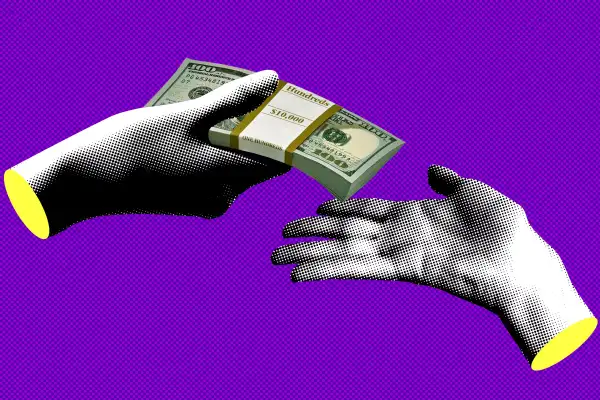New CFPB Rule Could Make It Easier to Switch Banks

Conveniences like having your paycheck automatically deposited and scheduled debits for monthly bills can be a double-edged sword if you want to move to a different bank. It's one reason why so many people feel stuck with their banks.
But that could all change, after the Consumer Financial Protection Bureau announced Tuesday that it finalized what supporters are calling an “open banking” rule, intended to make people's financial histories portable so they can switch banks more easily.
The new Personal Financial Data Rights rule stipulates that banks will be required to transfer your financial information from your current bank to a new institution at your request. The CFPB said in a statement the rule will increase competition and consumer choice, which it predicts will lead to improved customer service and better terms for bank customers on products like loans. Regulators hope that requiring banks to provide customers with data about account verification, transaction information, upcoming bill payments and other everyday banking activities — for free — will make it easier for people to switch banks, shop for financial products and ultimately save money.
Consumer advocates who monitor banks praised the new rule.
“It’s just too complicated to switch and risk being charged an overdraft or late fee if they miss a recurring bill,” Adam Rust, director of financial services at the Consumer Federation of America said in a statement. The CFPB noted that banks capitalize on this to keep customers from defecting, using tactics like warning people that canceling their account could hurt their credit score or their ability to borrow money in the future.
This rule is a long time coming: Lawmakers mandated reforms as part of the Dodd-Frank Act of 2010. The landmark piece of banking legislation, passed in the wake of the financial crisis, sought to reform financial regulation and empower bank customers. But consumers will still have to wait longer to feel the effects of the new rule. The CFPB says big banks will need to comply starting in 2026, while smaller banks have until 2030.
Consumers will get more control over their financial data
In prepared remarks at a Federal Reserve Bank of Philadelphia on Tuesday, CFPB Director Rohit Chopra compared the new rule to a Federal Communications Commission policy that required cell phone providers to let people keep their phone numbers even if they transfer to a new provider. Making it easier for people to vote with their feet if they get lousy terms or poor service will motivate the financial industry to improve both, the agency says, by forcing banks to be more competitive to keep customers from walking out the door.
One facet of the rule would allow people to borrow money based on financial data held by other entities, not only the lender. Chopra said this could improve access to credit by, for example, letting a lender write a mortgage based on information in the borrower’s checking account that demonstrated their income, expenses and financial details. (The information would be obtained with the customer's permission.)
Longer-term benefits of cash-flow underwriting, as this practice is called, could include reducing the need for credit scores. Chi Chi Wu, senior attorney at the National Consumer Law Center, calls cash-flow underwriting the “most promising” use of consumer financial data portability.
“We think it’s a promising alternative to traditional credit reports and credit scores,” she says, adding that it could lead to better, more accurate determinations of borrowers’ creditworthiness than traditional credit reports. Circumstances beyond a person's control like illness or job loss can tarnish their credit, while cash-flow underwriting provides more visibility into people’s day-to-day financial activity, she says. “I think it should be the future of credit underwriting."
More from Money:
Democrats and Republicans Actually Agree on These Ideas to Fund Social Security
Inside the Biden Administration's Plan to Stop 'Out-of-Control' Overdraft Fees
Banks Are Offering Hundreds of Dollars to Open a Checking Account. What's the Catch?

